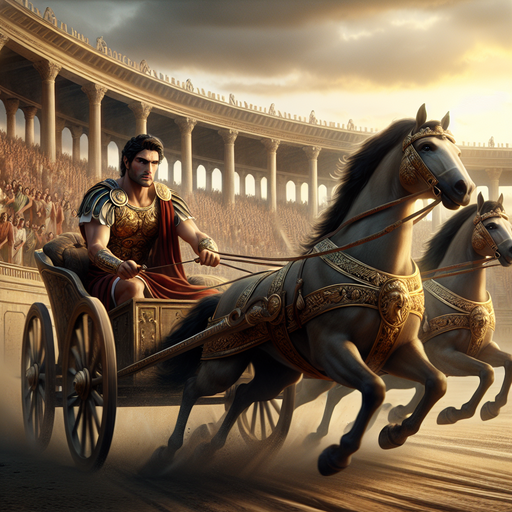Which Sport Did Nero Win

Throughout history, there have been many tales of rulers and their accomplishments, some more credible than others. One such tale, steeped in both intrigue and controversy, is that of Roman Emperor Nero and his triumphant victory in the ancient Olympic Games. This story, like many from antiquity, intertwines fact and myth, offering a glimpse into the eccentricities of one of Rome's most infamous emperors.
The Historical Background of Nero
Nero Claudius Caesar Augustus Germanicus, more commonly known as Nero, reigned as the fifth Roman emperor from 54 AD until his death in 68 AD. Known for his artistic ambitions, love of music, and a penchant for grandiose public spectacles, Nero's reign was marked by extravagance and tyranny. As a ruler, he was often criticized for prioritizing personal indulgences over the welfare of the Roman state.
Nero's Participation in the Olympics
One of the most peculiar stories about Nero is his participation in the Olympic Games of 67 AD. The ancient Olympics, held in Olympia, Greece, were a prestigious event, drawing athletes from across the Hellenistic world to compete in various sports. Nero, eager to showcase his prowess, entered multiple events, keen on demonstrating his athletic abilities to the Greeks, whom he greatly admired.
The Infamous Victory
Among the sports Nero participated in was the chariot race, a highly competitive and dangerous event. According to historical records, Nero insisted on racing with a ten-horse chariot, a decision that was as reckless as it was ambitious. During the race, Nero was reportedly thrown from his chariot and was unable to complete the course. However, in a testament to the influence wielded by an emperor, Nero was declared the victor regardless of his failure to finish the race.
This decision was likely influenced by Nero's status and the fact that he was a benefactor of the games, having showered the Greeks with gifts and favors to secure his participation. The story of his "victory" is often cited as an example of how power and influence could bend the rules, even in the sacred context of the Olympic Games.
The Aftermath and Historical Interpretation
Nero's involvement in the Olympics and his dubious victory were met with mixed reactions. While some saw it as a testament to his love for Greek culture and his desire to be seen as a universal leader, others viewed it as a mockery of the Olympic spirit. After Nero's death, his name was removed from the list of Olympic victors, and his actions were largely condemned by Roman historians.
Modern historians often debate the accuracy of these accounts, suggesting that they might have been exaggerated by Nero's political enemies. Nevertheless, the tale of Nero's Olympic victory remains a fascinating story of ambition, power, and the complex interplay between politics and sports in ancient Rome.
Conclusion
The story of Nero's participation and victory in the ancient Olympic Games serves as a captivating narrative that highlights the peculiarities of his reign. It is a reminder of how history can be shaped by those in power, and how the legacy of a ruler can be a blend of truth and legend. As we reflect on Nero's Olympic saga, we are reminded of the timeless nature of human ambition and the enduring allure of the Olympic spirit, even in the face of controversy.